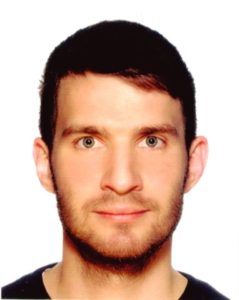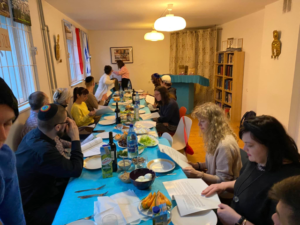[maxbutton id=”6″ url=”https://polishjewsreviving.org/emor-23/” ] This week’s Torah portion, Emor, describes the requirements that the priests who served in the Temple were supposed to meet. These expectations stemmed from the role the priests played in serving the Eternal: [perfectpullquote align=”full” bordertop=”false” cite=”” link=”” color=”” class=”” size=””]They shall be holy unto their God, and not profane the […]
Emor 23
By Rabbi Mati Kirschenbaum Leave a Comment Filed Under: Sermons



















